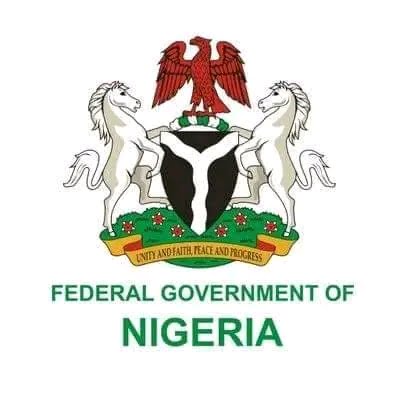Autocratic Leadership in Crisis Management in Nigeria

Autocratic Leadership in Crisis Management in Nigeria – Autocratic leadership, characterized by a leader making decisions without input from others, plays a significant role in crisis management within the Nigerian context. This style of leadership, often associated with quick decision-making and clear directives, has been both praised and criticized in the realm of governance and organizational management.
In Nigeria, a country plagued by political instability, economic challenges, and social issues, the application of autocratic leadership in times of crisis has been a subject of debate and scrutiny.
Read: 20 Top Small Business Ideas In Nigeria With Low Capital
Autocratic Leadership in Nigeria
Autocratic leadership in Nigeria has been a prevalent style adopted by political leaders and business owners, especially during times of crisis. This leadership approach involves a top-down decision-making process where the leader holds significant power and authority. In the Nigerian context, autocratic leaders often take charge in situations of urgency, aiming to provide swift solutions to pressing issues.
Autocratic Leadership Styles in Crisis Management
During crises, such as political unrest, economic downturns, or public health emergencies, autocratic leaders in Nigeria tend to assert their control and authority to navigate through challenges. This style of leadership is characterized by a leader who takes charge, makes decisions independently, and expects strict adherence to directives. In Nigeria, autocratic leadership has been both commended for its ability to provide quick responses and criticized for its lack of inclusivity and potential for abuse of power.
The Role of Autocratic Leadership in Nigerian Governance
In the Nigerian political sphere, autocratic leadership has been observed in various administrations, where leaders have wielded significant power to address crises ranging from security threats to economic instability. The application of autocratic leadership in governance has been a double-edged sword, with proponents arguing that it enables decisive action in times of need, while critics highlight concerns about transparency, accountability, and the suppression of dissenting voices.
Challenges and Controversies Surrounding Autocratic Leadership
The utilization of autocratic leadership in crisis management in Nigeria has sparked debates regarding its effectiveness and ethical implications. Critics argue that autocratic leaders may overlook diverse perspectives, stifle innovation, and alienate stakeholders, leading to potential long-term repercussions. On the other hand, proponents of autocratic leadership emphasize its ability to provide clear direction, maintain order, and drive rapid responses to crises.
What are the Advantages and Disadvantages of Autocratic Leadership in Crisis Management in Nigeria
Autocratic leadership in crisis management in Nigeria has both advantages and disadvantages.
Advantages of Autocratic Leadership in Crisis Management
1. Quick decision-making: Autocratic leaders can make decisions swiftly without the need for extensive consultations, which can be crucial in high-pressure situations or emergencies.
2. Efficient decision-making: Autocratic leaders have the ultimate decision-making authority, leading to efficient decision-making processes.
3. Clear direction: Autocratic leaders provide clear and specific instructions, reducing ambiguity and leading to a more focused and efficient team effort.
4. Effective crisis management: Autocratic leaders can respond rapidly to crises and unforeseen challenges without the need for lengthy consultations, which can be advantageous in critical situations where immediate action is required.
5. Productive workplace: Autocratic leaders encourage the completion of productive projects by making decisions and promptly conveying them to the team, ensuring that they have all the necessary knowledge to complete the project on time.
6. Direct communication: Autocratic leaders make communication easier and more direct with their staff by giving them all the information they require, reducing miscommunication and increasing efficiency.
Disadvantages of Autocratic Leadership in Crisis Management
1. Low employee morale: The authoritative nature of autocratic leadership often leads to low employee morale and motivation, as team members may feel undervalued and unimportant when their opinions and ideas are consistently disregarded.
2. Innovative suppression: Autocratic leaders’ dominant control can hinder innovation and creativity within the organization, as employees may be reluctant to propose new ideas or take risks, fearing the leader’s disapproval.
3. Decrease in employee morale: The lack of employee participation in decision-making can lead to low employee morale and motivation, as team members may feel undervalued and unimportant when their opinions and ideas are consistently disregarded.
4. Absence of micromanagement: Autocratic leaders who micromanage can create a sense of fear and pressure among employees, leading to decreased productivity and creativity.
While it can provide quick and efficient decision-making, it can also lead to low employee morale and a lack of creativity and innovation. Therefore, it is crucial for leaders to strike a balance between autocratic leadership and other leadership styles to ensure the best possible outcomes in crisis management.
Autocratic Leadership in Business and Organizational Settings
Beyond the political realm, autocratic leadership is also prevalent in Nigerian businesses, particularly during times of organizational crisis. Business owners and managers often resort to autocratic decision-making to address challenges such as financial instability, market disruptions, or operational setbacks. While this approach may yield immediate results, its long-term impact on employee morale, innovation, and organizational culture is a subject of ongoing discussion.
What are some examples of Successful Crisis Management in Nigeria using Autocratic Leadership
Autocratic leadership in crisis management in Nigeria has shown some successful examples, particularly in emergency situations and time-sensitive tasks. In such scenarios, autocratic leaders can make quick and decisive decisions, providing clear direction and efficient decision-making processes. This style of leadership can be beneficial in high-pressure situations or emergencies that require immediate action.
For instance, during the COVID-19 pandemic, the Nigerian government, under the leadership of President Muhammadu Buhari, took an autocratic approach to managing the crisis. The government implemented strict lockdown measures, enforced social distancing guidelines, and coordinated the distribution of relief materials to affected citizens. This autocratic leadership style allowed for swift decision-making and a clear chain of command, ensuring that decisions were implemented without questioning.
However, the autocratic leadership style also has its drawbacks, such as low employee morale and innovative suppression. These challenges can hinder long-term progress and stifle creativity within organizations. Therefore, it is crucial for leaders to strike a balance between autocratic leadership and other leadership styles to ensure the best possible outcomes in crisis management.
Autocratic leadership in crisis management in Nigeria has shown some successful examples, particularly in emergency situations and time-sensitive tasks. However, it is essential to consider the potential drawbacks of this leadership style and strive for a balanced approach that incorporates the strengths of other leadership styles. This balanced approach can help ensure the best possible outcomes in crisis management while minimizing the potential negative impacts on employee morale and innovation.
How does Autocratic Leadership compare to other Leadership Styles in Crisis Management in Nigeria
Autocratic leadership in crisis management in Nigeria is often compared to other leadership styles, such as transformational, transactional, and laissez-faire leadership. Each leadership style has its strengths and weaknesses, and the effectiveness of a particular style can vary depending on the context and the nature of the crisis.
Autocratic leadership is characterized by a centralized decision-making process where the leader holds absolute authority and makes decisions without much input from the team. This style can be effective in emergency situations or time-sensitive tasks where quick decision-making and clear direction are essential. However, it can also lead to low employee morale and innovative suppression, as team members may feel undervalued and unimportant when their opinions and ideas are consistently disregarded.
Transformational leadership, on the other hand, focuses on inspiring and motivating team members to achieve a shared vision. This style can be effective in fostering creativity, innovation, and engagement among team members. However, it may not be as effective in emergency situations or time-sensitive tasks where quick decision-making is necessary.
Transactional leadership is based on a system of rewards and punishments to motivate team members to achieve specific goals. This style can be effective in situations where clear goals and objectives are necessary, and team members are motivated by external rewards. However, it may not be as effective in fostering creativity, innovation, or engagement among team members.
Laissez-faire leadership is characterized by a hands-off approach where team members are given complete autonomy to make decisions and complete tasks. This style can be effective in situations where team members are highly skilled and motivated, and the task is well-defined. However, it may not be as effective in emergency situations or time-sensitive tasks where quick decision-making and clear direction are necessary.
Conclusion
Autocratic leadership in crisis management in Nigeria remains a complex and multifaceted phenomenon. While this leadership style can offer expediency and decisiveness in addressing urgent issues, its implications for governance, organizational dynamics, and societal well-being warrant careful consideration.
As Nigeria continues to grapple with various challenges, understanding the nuances of autocratic leadership and its role in crisis management is essential for fostering effective leadership practices and sustainable development.
The application of autocratic leadership in crisis management in Nigeria reflects a delicate balance between expediency and ethical considerations, highlighting the need for leaders to navigate challenges with prudence, accountability, and a long-term vision for the nation’s progress.






